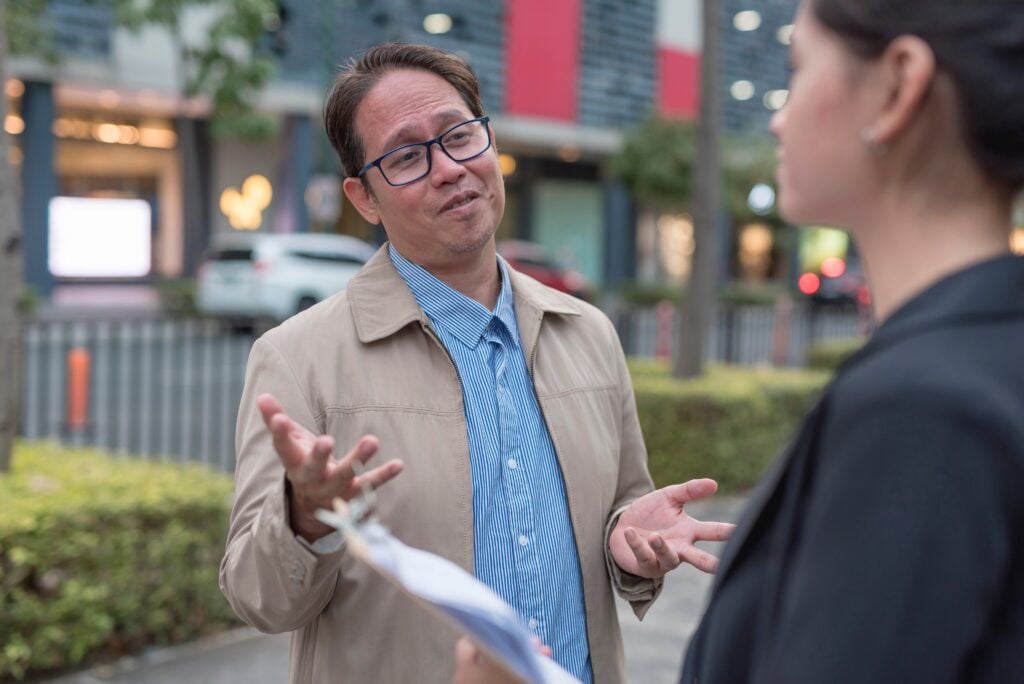These mental mistakes are ruining your judgment without you even knowing.

Think your beliefs are rock-solid? Think again. You might be surprised to discover that even your most deeply held opinions could be sitting on shaky ground. We like to believe our judgments are the result of sound reasoning, but in reality, we often fall prey to mental shortcuts and emotional biases that distort the way we interpret the world. These errors feel natural and even logical—but they quietly chip away at our ability to think clearly.
If you’re ready to spot the hidden flaws messing with your judgment, here are 11 mental traps you might be falling into.
1. You always agree with people who think just like you.

It feels comforting to nod along with people who echo your beliefs. There’s a sense of validation when everyone in your circle seems to “get it” the same way you do. But this comfort zone can become a mental cage. The more time you spend in agreement, the less likely you are to question or refine your opinions. Echo chambers not only limit growth, but they give a false sense of confidence—because you’re hearing reinforcement, not truth, Jeff Fox of Medium.com reported.
When we rarely engage with different perspectives, our thinking gets soft. We stop exercising the muscle of curiosity and begin reacting instead of reasoning. If someone challenges your beliefs and you instantly dismiss them as wrong or ignorant, ask yourself if it’s really because they are—or because you’ve grown too attached to being right. True insight often comes from the discomfort of disagreement.
2. You shut down the moment someone disagrees with you.

Disagreement doesn’t feel good—especially when you’re sure you’re right. But getting defensive the moment someone pushes back is often more revealing about your mindset than it is about theirs. It shows you might be holding onto a belief not because it’s well thought-out, but because it feels familiar or safe. That knee-jerk rejection is often fear disguised as certainty.
Instead of rushing to defend yourself, try asking: Why does this person see it differently? What might they know that I don’t? You don’t have to agree with every opposing viewpoint, but you can train yourself to stay open and curious. Listening with the intention to understand—not just respond—can be one of the sharpest tools in your critical thinking toolkit, as stated by Steve McKinney at Mckinney Consulting.
3. You rely on gut feelings more than facts.

Your intuition might be powerful, but it isn’t always accurate. Gut instincts are shaped by emotion, memory, and bias—and while they can sometimes steer you right, they can also mislead you in subtle but significant ways. If you’re making decisions because something “just feels true,” you might be skipping the all-important step of verification.
Facts don’t care about your feelings, and neither should sound judgment, according to David Tate of Now Let’s Be Honest. It’s not about silencing your gut entirely—it’s about using it as a starting point, not a final answer. Check the data. Look at the evidence. Ask questions. When your gut and the facts align, your beliefs are far more grounded. When they clash, lean into the discomfort of finding out why.
4. You think everyone who disagrees is misinformed or “just doesn’t get it.”

Dismissing opposing views as ignorant is a shortcut that saves time—but it costs you growth. It’s easier to believe you’re the one with superior insight than to consider that someone else might have a valid perspective you haven’t thought of. This mindset turns conversations into competitions instead of opportunities for understanding.
Instead of assuming others are wrong because they differ from you, try assuming they might be partially right. Even flawed arguments often contain a grain of truth. You might discover a new angle, a deeper question, or a clearer understanding of your own beliefs. Dismissing someone too quickly doesn’t make you smarter—it just keeps you stuck.
5. You base your opinions on headlines or social media soundbites.

We live in a scroll-and-click culture where information flies by in seconds. It’s tempting to form strong opinions from flashy headlines or viral posts—but those snippets rarely tell the full story. They’re designed to provoke, not inform. When you let them form the basis of your beliefs, you’re building on sand, not stone.
True understanding requires patience and context. It takes reading beyond the headline, questioning the source, and looking into alternative interpretations. Ask yourself: Where is this information coming from? What’s being left out? If your beliefs are built on fragments, it’s only a matter of time before they crumble under scrutiny.
6. You feel uncomfortable when people ask you to explain your views.

You might think you believe something deeply—until someone asks, “Why?” and you stumble. That discomfort isn’t just about public speaking or social awkwardness; it’s often a clue that your beliefs haven’t been fully examined. If you can’t clearly explain your viewpoint, it might be more about emotion than logic.
Try treating those moments of discomfort as invitations to dig deeper. Can you back your stance with facts, reasoning, and examples? Can you defend it without getting defensive? Being able to articulate your thoughts clearly is one of the best signs of well-developed thinking. It’s not about having all the answers—it’s about understanding your own mind better.
7. You think your life experience is proof enough that you’re right.

Personal experience feels powerful because it’s yours. But assuming your story applies to everyone can seriously warp your perspective. It’s a common mistake to think, “If it worked for me, it should work for you,” or “My reality is the reality.” But our experiences are shaped by countless factors—culture, background, personality, luck—that don’t transfer neatly to others.
What’s true for you might be entirely foreign to someone else—and vice versa. Critical thinking means recognizing the limits of your own viewpoint and being willing to listen to others’ stories without judgment. Your experience is valid, but it’s just one chapter in a much larger book.
8. You avoid changing your mind—even when faced with solid evidence.

Changing your mind isn’t weakness—it’s a sign of growth. But it can feel like admitting defeat, especially if you’ve been loudly defending a belief for years. So instead of updating your thinking, you double down. You look for loopholes in the new evidence or find ways to discredit the source. That resistance is a red flag.
Intelligent people revise their views all the time. They see flexibility not as indecision, but as maturity. When you encounter solid evidence that contradicts your stance, take it seriously. It’s not about surrendering—it’s about evolving. The strongest beliefs are the ones that have survived honest scrutiny.
9. You believe in “either/or” thinking without considering the gray areas.

The world is complex, but our brains crave simplicity. That’s why we often reduce big issues into binary choices: this or that, right or wrong, good or evil. But reality doesn’t operate in absolutes. When you cling to black-and-white thinking, you miss the richness of nuance—the space where real understanding lives.
Critical thinking means embracing ambiguity. It’s being okay with the fact that two things can be true at once, or that the best answer might be “it depends.” If you’re stuck in “either/or” mode, challenge yourself to explore the middle ground. That’s often where the real wisdom is hiding.
10. You never check if your sources are credible—or if they’re biased.

We all want to believe we’re informed. But if you’re getting your information from sources that are unreliable or heavily biased, your opinions are built on shaky ground. Even well-meaning people can fall for misinformation when they don’t take time to question what they’re consuming.
A quick source check can go a long way. Who published this? What’s their agenda? Are there other perspectives? Bias doesn’t make information worthless—but ignoring it makes your judgment weaker. Being a thoughtful thinker means staying alert to the possibility that your “facts” might be filtered through someone else’s lens.
11. You think anyone who questions your beliefs is attacking you personally.

It’s easy to feel wounded when someone challenges your ideas—especially if those ideas are tied to your identity or values. But not every disagreement is an attack. Sometimes, it’s just another person trying to understand or offer a different take. When you react as if criticism is an insult, you shut down valuable dialogue.
Try separating the belief from your sense of self. It’s not about you—it’s about the idea. When you stop taking things personally, you open the door to better conversations and sharper thinking. The ability to engage with criticism calmly is one of the clearest signs of a truly strong mind.
